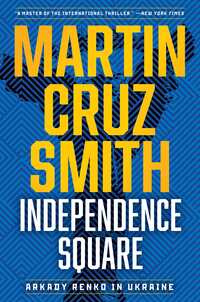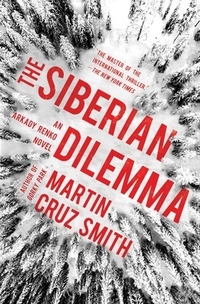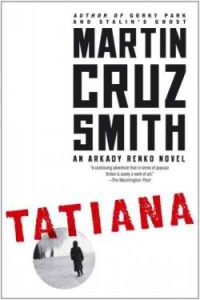Independence Square by Martin Cruz Smith
 Wednesday, May 3, 2023 at 6:56AM
Wednesday, May 3, 2023 at 6:56AM 
Published by Simon & Schuster on May 9, 2023
Arkady Renko is one of my favorite protagonists in the world of crime fiction. Renko has long struggled (with surprising success) to maintain his integrity in a corrupt land. In Independence Square, his indirect adversary is the most powerful man in Russia, if only because all corruption in Russia eventually pays its dues to Putin.
The story takes place shortly before Russia’s invasion of Ukraine. A Moscow racketeer who goes by the nickname Bronson wants to hire Renko to find Karina Abakov, his missing daughter. As a Moscow police detective, Renko knows his perilous career will be over if he is caught taking money from Bronson, but he agrees to help for free.
Karina was affiliated with a social movement called Forum for Democracy. When Renko asks if the movement is anti-government, the response he receives is “Isn’t everybody?” Whenever the group has a demonstration, motorcycle thugs known as the Werewolves break it up. The Werewolves are Putin’s version of the Hell’s Angels. How they know the Forum’s movements in advance is a mystery.
Renko has an adopted son named Zhenya who happens to know Karina. Zhenya knows Karina’s friend Elena better. Zhenya’s friend Alex is sweet on Karina, so Renko visits with Alex and Elena to see if either of them has a line on Karina’s current location. Alex apparently learns something about Karina and sends Renko pictures of three Russian authors as a coded clue. Before Renko can meet with him again, Alex is assassinated. Renko is assigned to investigate the death, giving him cover to poke into Karina's disappearance.
The story involves multiple loosely related assassinations. Renko’s search for Karina takes him to Kyev and Sevastopol, where some of those assassinations occur. The plot twists a couple of times and generates at least one genuine surprise. Fortunately, Martin Cruz Smith doesn’t follow the path of outrageous twists that are common to lesser thriller writers. The story never sacrifices plausibility to create suspense, but Smith does generate tension as the plot moves toward its conclusion. Independence Square isn’t as compelling as Smith’s best novels, but I am always captivated by the stories he tells.
Although the story precedes the invasion of Ukraine, it is timely. Renko views Putin’s Russia as “Stalin’s Great Terror updated for modern times, with disinformation, legal machinations, indiscriminate violence.” While Putin is a monster lurking just beyond the novel’s perimeter, much of the story focuses not on the forthcoming war but on Crimean Tartars, an ethic group that has been oppressed for centuries. Through a Tartar living in exile in Kyev, Smith offers a quick lesson in the group’s history before and after the most recent Russian occupation of Crimea.
Renko’s life changes a bit with every novel in the series. In Independence Square, Renko becomes involved with Elena just as Tatiana, the journalist who used to be his lover, crosses his path again. Tatiana is the woman he can’t forget. Her loss is one of the many events that has left Renko with a tortured soul. His discovery that he is in the early stages of Parkinson’s only adds to his sense of resignation. Whether resignation will be offset by hope and whether newfound hope will be shattered are always questions in Renko novels. Where Renko’s life will go next is a question I hope Smith will answer soon.
RECOMMENDED
 TChris |
TChris |  Post a Comment |
Post a Comment |  Martin Cruz Smith in
Martin Cruz Smith in  Thriller
Thriller 

